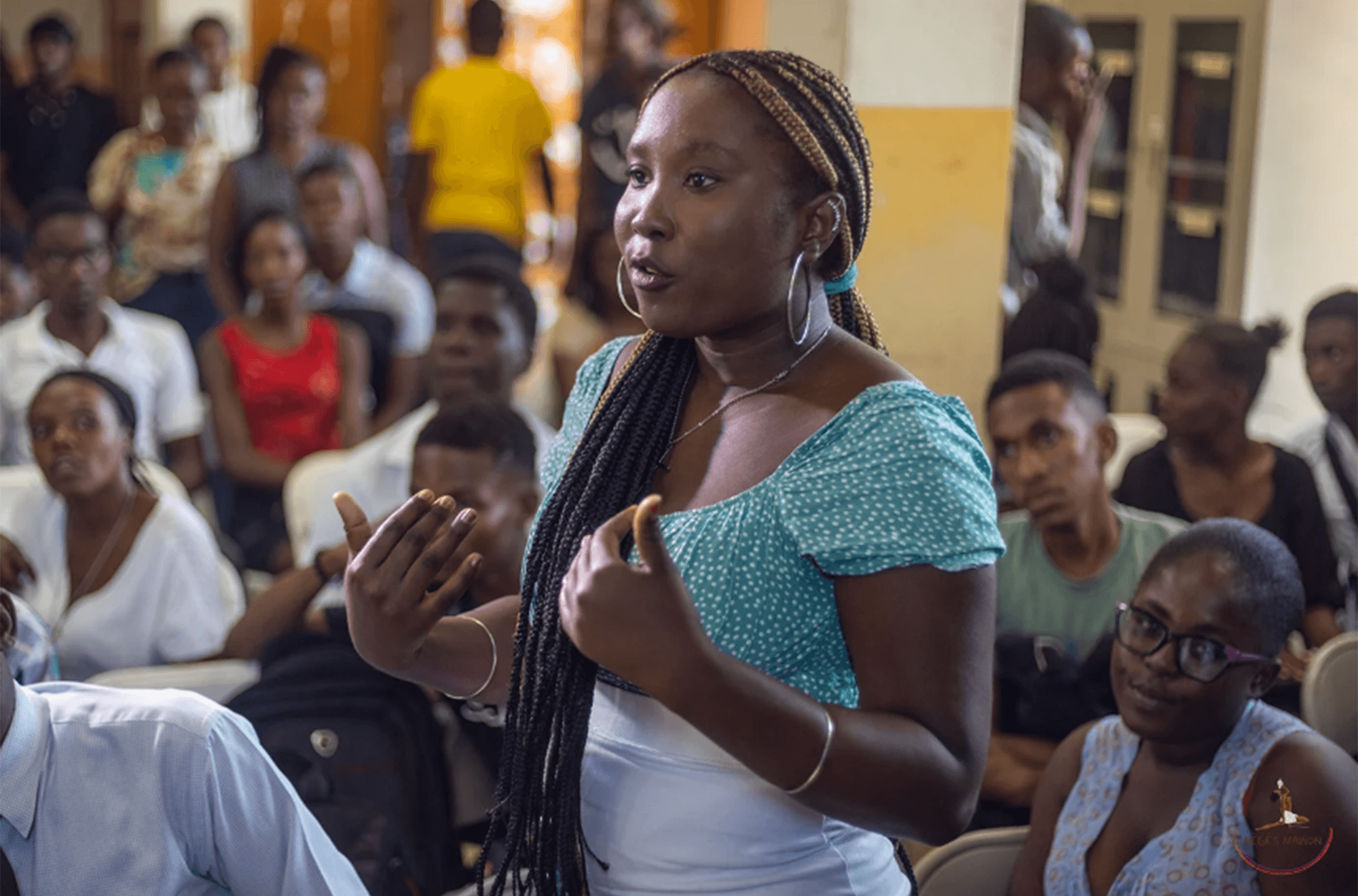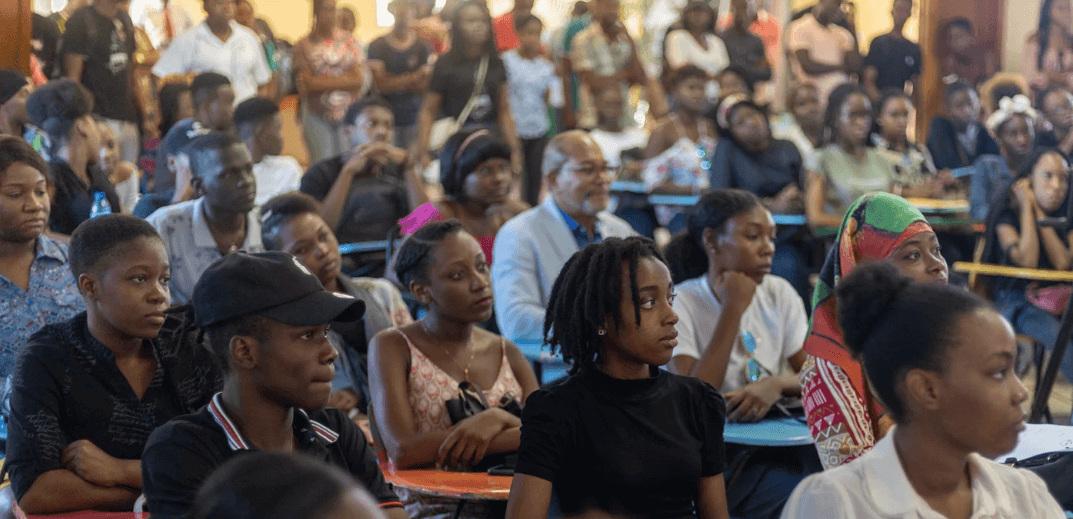
Reclaiming safe abortion access in Haiti
“Don’t move.” Those were the only words from the doctor who performed Samora’s first abortion 15 years ago in Port-au-Prince during her 30-minute appointment. She can’t tell you the details of the procedure she underwent. The doctor never told her. All she remembers is being alone with a stranger and feeling terrible pain, which anaesthesia did little to numb. Three days later, she had lost so much blood that she had to see another doctor, but couldn’t tell him why because of Haiti’s strict anti-abortion laws. “It was really shocking. … I could die, and no one would know what happened to me … and the doctor would probably deny it.” Her second abortion was safe, done in a hospital, for $150.
Almost all abortions in Haiti are illegal. Still she found a clinic that offered the illegal procedure, located across the street from one of the city’s most prominent hospitals. It cost her $50, which she paid in cash. “We all know a dozen places where someone can get an abortion, or where we can go to get an abortion cheaply, in extreme conditions.”
The first feminist organisation in Haiti was founded in 1934. For years, feminist organisations have been advocating for the decriminalisation of abortion. Victory came close in 2020, when the late Haitian President Jovenel Moïse introduced an updated penal code, legalising abortion under certain conditions. It also listed gender-based violence as a punishable offense and would have legalized voluntary abortion for up to 12 weeks in cases of rape, incest, or endangerment of the woman’s mental or physical health. But Moïse was assassinated in 2020 and the law reform didn’t happen.
“Safe abortion access can break generational cycles of poverty, allowing women to become agents of their own lives and provide better lives for generations to come,” says Cécile Accilien, a professor of Caribbean studies and president of a Haitian Studies Association based in Atlanta. “Women who have access to abortion are more likely to become economically independent… If you don’t have economic independence, you can’t have real independence.”
According to the last Haiti Demographic and Health Survey conducted in 2016, more than half of the abortions in Haiti since 2011 happened outside the formal health care system. Some women use misoprostol, which can be purchased in a pharmacy. Many of the calls that Nègès Mawon — a group that, among other mandates, works to improve the conditions in which women and girls live in Haiti — receives are from women who’ve already tried to abort their pregnancies and are battling infections or experiencing complications from taking medication. They don’t have access to information on how to use the medication, not even the dose.
Nègès Mawon cites art as one of the primary media through which it advocates for women. Last year, in collaboration with local artists, the organization debuted a theatrical play called Danta, which tells the story of a woman mourning the death of her daughter, who dies after an unsafe abortion. The play, written by Joanne Joseph, a Nègès Mawon member, took three years to write and produce. It opened at the organisation’s annual Festival Féministe.
“It’s a play that’s really intense, that brings a lot of emotion and a lot of pain for women,” says Pascale Solages, co-founder and general coordinator of Nègès Mawon. “Last year, about 100 people saw it. This year, we hope to reach thousands more.” The play is currently on a two-year tour across the country, where it will reach universities, rural areas, feminist groups, and vulnerable communities. Every performance of Danta engages spectators in conversations about abortion, the right to choose, and other topics covered in the play. Solages says she hopes the tour will save lives by educating people about sexuality, safe abortion, and gender-based violence. To make the play’s content more impactful, Nègès Mawon has enlisted the help of a midwife to help transform it from a piece of performance art into a powerful educational experience. Says Solages: “It’s a question of women’s lives, of their liberty, of their well-being. In Haiti, we’re not even there yet. We’re just trying to save as many women as possible.”
SOURCE: Yes! Solutions Journalism, by Jade Prévost-Manuel, 30 March 2023 ; PHOTO by Négès Mawon
+++

Sexual behaviors, contraception use and barriers among adolescents and young adults in rural Haiti
by Abbey R Masonbrink, Emily A Hurley, Nikolaus Schuetz, Jonathan Rodean, Emily Rupe, Kemi Lewis, Marie Daphnée Boncoeur, Melissa K Miller
BMC Women’s Health. 27 March 2023 (Open access)
Abstract
Background
Adolescents and young adults (AYAs) in Haiti experience a high unintended pregnancy rate, in part due to unmet contraception needs. Little is known about AYA opinions of and experiences with contraception that may explain remaining gaps in coverage. We aimed to describe barriers and facilitators to contraception use among AYAs in Haiti.
Methods
We conducted a cross-sectional survey and semi-structured qualitative interviews with a convenience sample of AYA females aged 14–24 in two rural communities in Haiti. The interviews assessed demographics, sexual health and pregnancy prevention behaviors and explored contraception opinions and experiences… Guided by content analysis, we analyzed interview transcripts through inductive coding and team debriefing.
Results
Among 200 survey respondents, 94% reported… past vaginal sexual activity, and 43% reported ever being pregnant. A large majority were trying to avoid pregnancy (75%). At last sexual activity, 127 (64%) reported use of a contraceptive method; with condoms the most common method (80%). Among those with previous condom use, most reported use only 55% of the time. AYAs were concerned about parental approval of birth control use (42%) and that their friends might think they are looking for sex (29%). About one-third felt uncomfortable going to a clinic to ask for birth control. In interviews, AYAs desired pregnancy prevention but frequently noted concerns about privacy and parental, community and healthcare provider judgment for seeking care for reproductive health needs. AYAs also noted a lack of contraception knowledge, evidenced by frequent misconceptions and associated fears.
Conclusion
Among AYAs in rural Haiti, a large majority were sexually active and desired pregnancy avoidance, but few were using effective contraception due to numerous concerns, including privacy and fear of judgement. Future efforts should address these identified concerns to prevent unintended pregnancy and improve maternal and reproductive health outcomes in this population.
PHOTO by Négès Mawon



